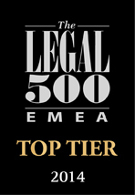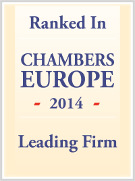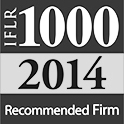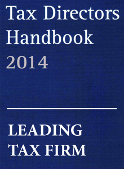
Personal Income Tax in Estonia
Personal income tax is imposed on the income of a taxpayer from which deductions pursuant to Estonian tax legislations have been made. The income tax shall be paid by natural persons and employers, who are natural persons, who in any way derive a taxable income. The period of taxation of personal income from which the deductions allowed pursuant to law have been made is one calendar year. The period of taxation of fringe benefits is one calendar month.
Following tax rates are applied during periods of taxation:
-
21% (2011)
Natural person is considered as Estonian resident if he or she has an actual residence in Estonia or has spent consecutively during the period of twelve calendar month at least 183 days. A person in question is considered a resident, with regard to the above mentioned conditions, from the day of arrival to Estonia. A non-resident natural person shall pay an income tax only on earnings derived from Estonian sources.
Income tax is charged on incomes derived by natural person from sources both within and outside Estonia. The following income is a subject to personal income tax:
-
Income from employment;
-
Business income;
-
Gains from transfer of property;
-
Rent and royalties;
-
Interest;
-
Dividends;
-
Maintenance support, pensions, scholarships, grants, benefits, awards, lottery prizes;
-
Insurance indemnities and pension funds;
-
Income of a legal person located in a low tax territory.
If a person derives income in foreign state, the income tax is not charged in case the person has stayed in the foreign state for the purpose of employment for at least 183 days over the period of 12 consecutive months and the specified income has been the taxable in that foreign state.
Regarding taxation of employment income, income tax is charged on all monetary remunerations of an employee or a public servant including all wages, salaries, holiday payments and benefits, compensations and extra payments of any kind. Furthermore the income tax is charged on remuneration or service fees paid on the basis of a contract for services, authorization agreement or any other contract under the law of obligations, including amounts paid to sportsmen. Income tax also concerns remunerations paid by legal bodies to members of management or controlling body.
In the list below some of gains which are free of income tax charge are mentioned:
-
Compensation for travel, accommodation and daily expenses of official travels;
-
Use of an automobile;
-
In-service training and re-training of employees paid for by the employer upon termination of the employment or service relationship due to redundancy;
-
Health treatment of employees injured at work.
Business is considered person’s independent economic or professional activity and income tax is charged on gains regardless time of receipt. Yet it has to be noticed that transfer of securities owned by a natural person does not automatically constitute business.
Gains from transfer of property include sale or exchange of any transferable and monetarily appraisable objects like real or movable property, securities, registered shares, contributions made to a general or limited partnership or an association, units of investment funds, rights of claim, rights of pre-emption, rights of superficies, personal rights of use, mortgages aso. In case of reduction in capital share of limited liability companies and redemption or return of shares or contributions income tax is charged on the amount in which the payments made to a person exceed the acquisition cost of the holding or the contribution.
All dividends received in monetary or non-monetary form from the foreign legal person by resident natural person are subject to income tax. Income tax is not charged in case the taxation of the share of profit has taken place or if income tax on the dividends has been withheld in a foreign state.
Deductions from income of resident natural person:
-
Basic deductible exemption: 1725 EUR in 2011
-
Exemption in case of three or more children amounting to one additional deductible exemption per child every year;
-
Exemption in case of pension;
-
Exemption in case of compensation for accident at work or occupational disease;
-
Exemption regarding maintenance support;
-
Housing loan interest;
-
Exemption regarding necessary livelihood;
-
Additional training expenses;
-
Gifts, donations and trade union entrance and membership fees;
-
Insurance premiums.
A non-resident natural person who derives an income from work under an employment contract or in public service or from activities engaged in on the basis of a contract for services, an authorization agreement or a contract entered into for the provision of any other services shall be charged with personal income tax. An important aspect to consider is that the duties or services are performed in Estonia as well as payments are made by an Estonian state or local government authority or resident or a non-resident operating in Estonia as an employer. Payments are also considered if made through the permanent establishment of a non-resident or if the natural person in question has stayed in Estonia for the purpose of employment for at least 183 days over the period 12 consecutive calendar months.
Situations, where income tax is not charged with regard to a non-resident natural person include foreign diplomatic or consular representative, diplomatic delegation, members of international or intergovernmental organizations, who are not a citizen or permanent residents of Estonia.








